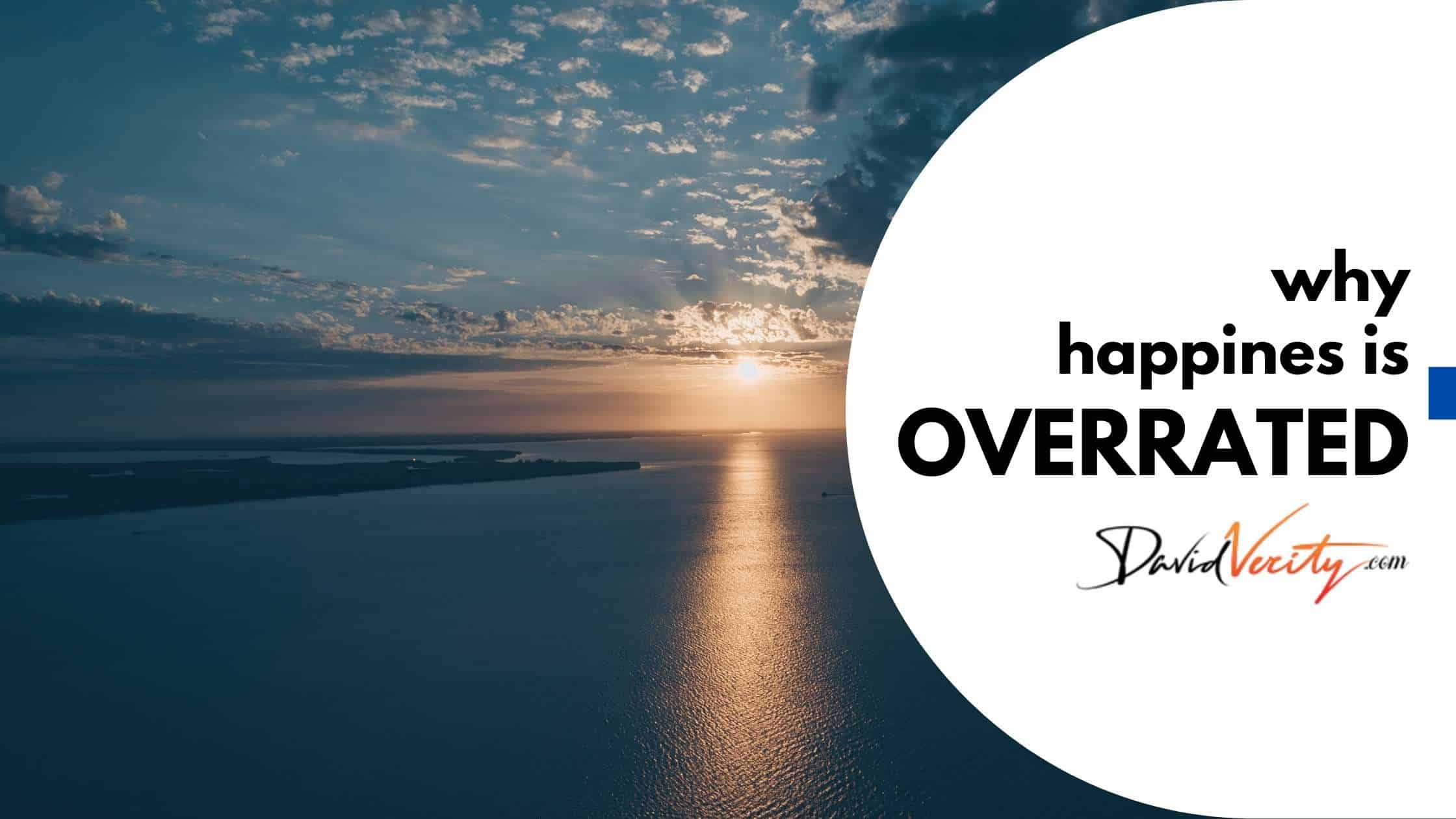
Happiness is overrated.
By that I do not mean that it is not important. It is incredibly important.
What I mean is that, it is not the meaning of life, as many purport it to be.
You wouldn’t know this however, by searching for queries such as, “what is the meaning of life”, or reading one of the countless books on the topic, though.
I mean, isn’t it Aristotle himself even said that the goal of life was to be happy, which he and the philosophers called eudemonia?
Besides, who can really say for sure what the meaning of life is, and who could be so narcissistic as to claim to know in the first place?
How then can one assert that happiness is overrated, and that it is, in fact, not the meaning of life?
By paying attention.
Awareness Is The Key To Understanding
I believe that the secrets of the universe such as these aren’t really secrets at all; that much like the white socks you can’t find because they’re hidden on a bed amidst perfectly evenly-matched white sheets, you can’t see them because they’re hidden right beneath our noses.
All we need to do is pay attention.
That is, however, obviously easier said than done.
Humans have the uncanny ability to become distracted at the flightiest fluttering by, the quickest glimpse of something attractive, or the faintest hint of something unusual. This is of course the way our brains are wired; if we weren’t able to shift focus instantly, it would mean all sorts of disaster for us.
But what does any of this have to do with happiness being overrated or living a meaningful life?
The Taoists knew that we could unlock the clues about our existence if we only just paid attention. That if we could slow our minds and our lives down long enough, that we could understand the true nature of harmony.
This too, the Buddhists believed, which is why they focused on the importance of meditation; to train the mind to no longer be a slave to unruly thoughts, but a powerful generator of powerful ones.
Thoughts that, hopefully, if one had the right resolve or intention, according to the Noble Eightfold Path, would be pure in the sense that they were in alignment with that which is harmonious.
But what happens when one is finally able to slow the mind down enough to actually be able to observe what is, and what should be, as demonstrated by the Tao, or the way of nature?
What happens is not only an immediate rapture of the senses up into a higher state of consciousness that immerses itself into a knowing – a fully arresting, and immoveable acceptance – that all things are connected.
This knowing speaks as lovingly as it does firmly a unity of eons of wisdom that exists in the fact that when one aims to accomplish something to the exclusion of others, that one is not on the right path.
That all things are here for the good, not only of the self but that the good of the self too, is achieved for the good also of others. That there is no point in achieving this good in the first place, if that good does not benefit others.
And therein lies the key and the reason for why happiness is not the meaning of life, and why Aristotle got it wrong. Why so many gurus on the topic get it wrong. And, of course, why you should at once change your focus from a life of happiness to a life of service.
Why Love — Service To God and Nature — Are The Ultimate Meaning of Life
Love is the light that feeds the world. It is the reason the sun shines. How can we know this? Because all life is dependent upon it’s existence. It exists not for the sake of itself, but for all life that surrounds it, which depend on it.
The same is true of you and your life. Like the sun, there are others who depend on you, if even in the smallest of ways. Love is what gives to them, as one would expect to be given to, if one were in someone else’s shoes.
It is the golden rule. It is the way of the Tao. It is what Jesus meant by “do unto others,” and so many other teachings by the ascended masters.
Love is the thing that unites all fields of energy in the entire universe. It acts not for it’s own sake, but for the sake of all. It is the reason for the cosmos, and for your life as well.
Whether you believe in God or not, whether you call him by a name or if you just prefer to think of God as the entirety of the cosmos and the Universe or Universes doesn’t matter. Whatever that energy is, that thing, is the reason why you are here.
We can know this, again, by observing. For there is no thing that has ever been created in nature which was not created for the benefit of something else.
This is made obvious when we think of fields such as ecology, which show that every single creature exists in a symbiotic relationship with other things.
It is obviated by discoveries such as that the human microbiome is as much responsible for human consciousness as the human cells themselves.
It is made evident by the laws of Relativity; a law that means, rather literally, that the primary Law of the Universe is that all things exist in relationship to other things.
But what Einstein failed to mention, is that they not only exist in relation TO other things, but FOR other things.
Just imagine for yourself, if you were the only living thing in the universe. There was no relativity. There were no other bodies living or non-living in time or space. You were just floating in blackness. Would you be happy?
I am arguing that this would be impossible. That happiness, in and of itself, can’t be the reason for life. That we must be here for a reason that is much bigger than ourself.
Take also into account the fact that studies have proven humans are actually happier when they are in service to others, but that the inverse is not true. People don’t necessarily do for others when they are happy. Yet, doing for others always makes humans happy.
This is why happiness is overrated. Because if all humans worked toward only their own happiness in mind, we would literally cease to exist. We would do only for self. It would mean we were egregiously independently focused, not collectively focused when, in fact, individuality is an illusion.
But don’t fret. Individuality, being represented by the number one, isn’t the only illusion. So are all numbers. Because numbers, in reality, aren’t real. They’re concepts. Concepts that help humans conceptualize things like placeholders in math, decimals in the number system, and so on.
To illustrate my point, imagine we are doing fractions:
You might have 1 of X, (with X being a “something”), and with something being a number such as 2.
You might have 1 of something else, with something else being another number like 3.
But just as we had one “of” something, let’s apply this fractioning to the something itself.
So in the first example the question becomes, 2 of what?
In the second example, the question becomes 3 of what?
The answer is the thing itself.
So it, quite literally, fractions back into itself.
Happiness Vs Love
Happiness is becoming rich and enjoying all that life has to offer. Love is establishing wealth for the sake of doing for others as well as for self.
Happiness is achieving an orgasm with a loving partner. Love is returning the favor so as to not be the only one who goes to sleep comfortably.
Happiness is eating a delicious meal. Love is sharing that meal so that the person across from you can enjoy how delicious the meal is before it’s gone.
And that is why living for ones own personal happiness is overrated, and ultimately, not in accordance with wisdom, the Tao, or the reason why you’re here.
You’re here to impart change upon the world. To benefit someone. You’re here to be useful. You’re here to make an impact. All of which in turn, will not only help you establish and fulfil your purpose, but will likewise make you happy in the process. When others win, you win. Make sure too, then, that when you win, others win as well.

